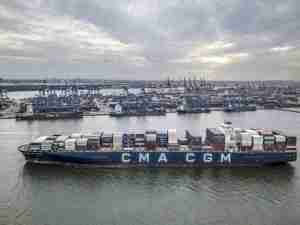"The last few days have seen a market turnaround with rates moving upwards," said Philip Soutter, head of dry cargo at Galbraiths in London.
"Sugar exporters from Brazil can expect this firmer trend to be maintained in Q2 as new crop grain and sugar come onstream," he added, speaking to Reuters on the sidelines of the Kingsman Dubai sugar conference.
"However, there is little optimism the market will be anything other than flat for the second half of the year."
The freight market has been pressured lower by a fresh supply of newly built ships.
"The bulk carrier market has been generally falling since the start of the last quarter of 2010. This has been brought about by record deliveries of new buildings saturating the market," Soutter said.
"New building additions are most noticeable in supramax to capesizes. The handysizes much used in sugar trades have the smallest order book and are most vulnerable to scrapping being the oldest sector of the fleet.
"Where port constraints permit, the handymaxes are increasingly becoming used by the sugar industry."
Soutter said freight demand growth has been hampered by restrained growth in commodity supply.
"Weather conditions have caused a series of problems. In Australia it is not just sugar that has been affected but also many coal exporters called for force majeure.
"Timecharter returns have been weak, but voyage charter rates have proved more resilient due to the increasing bunker prices."
Soutter said he expected that a trend for increased use of containers to ship refined (white) sugar would continue.
"The elderly profile of the tweendeck fleet which for so long has been the workhorse of the bagged sugar trades, mean these vessels are disappearing from international trade," he said.
"It looks as if the increasing use of containers will continue for this sector."








